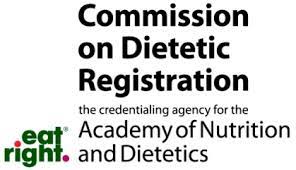
Updates on Xenotransplantation and the Artificial Kidney
Activity description
This activity consists of a recorded presentation from the "Essentials of Oncology, Solid Organ and Blood/Marrow Transplant Management for the Health Care Team" conference held in Scottsdale, Ariz., March 14–15, 2022.
Each year, roughly 5,000 of the 90,000 individuals waitlisted for renal transplant die before a donor kidney becomes available. Recently, there has been a dramatic increase in focus on the development of the artificial kidney and advancing xenotransplant science. In September 2021, the U.S. Department of Health and Human Services and the American Society of Nephrology announced the winners of Phase 1 of the KidneyX Artificial Kidney Prize based on their potential to advance the functionality, effectiveness and reliability of the artificial kidney. The approaches included implantable bioartificial kidneys, genetically engineered xenotransplants from porcine models, toxin-removal systems, and wearable continuous hemodialysis devices. What are the benefits, risks, and financial and ethical implications of these advances? Join this session to discuss how technology to treat end-stage kidney failure has advanced in recent years, including a review of clinical trials of portable devices and implantable xenotransplants, and what the future holds for the next phase of investigation into the artificial kidney and xenotransplant.
Provided by
This activity is provided by OptumHealth Education.
Commercial support
There was no commercial support for this activity.
Required hardware/software
Please ensure you are using the web-browser Chrome and disable any pop-up blocking software. Click here for information on how to enable pop-ups.
Target Audience
This activity is designed to meet the educational needs of case managers, nurses, pharmacists, pharmacy technicians, physicians, psychologists, social workers, dietitians, and other health care professionals who are interested in kidney disease and the development of the artificial kidney and advancing xenotransplant science.
Learning Objectives
At the end of this educational activity, participants should be able to:
- Review the physiological functions of the human kidney that a xenotransplant or artificial kidney must incorporate to perform adequately.
- Describe the current status of emerging artificial kidney designs and xenografts, as well as the benefits and risks that have become evident as this technology continues to advance.
- Identify how xenotransplant development is attempting to reduce rejection possibility and address the antibody barrier to xenotransplantation.
- Discuss how the implementation of successful xenotransplants and artificial kidneys can positively impact the financial costs associated with hemodialysis and the treatment of end-stage kidney disease.
Faculty
 Robert Montgomery, MD, PhD
Robert Montgomery, MD, PhD
Chair, Department of Surgery
Director
NYU Langone Transplant Institute
New York, NY
About the presenter
Dr. Robert A. Montgomery is the chairman and professor of surgery at NYU Langone Health and the director of the NYU Langone Transplant Institute. He received his MD with honor from the University of Rochester School of Medicine. He received his PhD from Balliol College, The University of Oxford, England, in molecular immunology. Montgomery completed his general surgical training, multi-organ transplantation fellowship, and postdoctoral fellowship in human molecular genetics at Johns Hopkins. For over a decade, he served as the chief of transplant surgery and the director of the Comprehensive Transplant Center at Johns Hopkins.
Dr. Montgomery was part of the team that developed the laparoscopic procedure for live kidney donation, a procedure that has become the standard throughout the world. He and the Hopkins team conceived the idea of the Domino Paired Donation (kidney swaps) and the Hopkins protocol for desensitization of incompatible kidney transplant patients. He also performed the first chain of transplants started by an altruistic donor. He led the team that performed the first two-way domino paired donation, three-way paired donation, three-way domino paired donation, four-way paired donation, four-way domino paired donation, five-way domino paired donation, six-way domino paired donation, eight-way multi-institutional domino paired donation, and co-led the first 10-way open chain. He is credited in the 2010 Guinness Book of World Records with the most kidney transplants performed in one day. He is considered a world expert on kidney transplantation for highly sensitized and ABO-incompatible patients and is referred the most complex patients from around the globe.
Dr. Montgomery has had clinical and basic science research supported by the NIH throughout his career. He has authored 300 peer-reviewed articles, been cited more than 26,000 times and has an h-index of 84. His academic interests include HLA sensitization, tolerance protocols including simultaneous solid-organ and bone-marrow transplantation, bioartificial organs, and xenotransplantation. He has received important awards and distinctions, including a Fulbright Scholarship and a Thomas J. Watson Fellowship and memberships in the Phi Beta Kappa and Alpha Omega Alpha academic honor societies. He has been awarded multiple scholarships from The American College of Surgeons and The American Society of Transplant Surgeons. The National Kidney Foundation of Maryland has recognized his contributions to the field of transplantation with the Champion of Hope Award, the National Kidney Registry with the Terasaki Medical Innovation Award and The Greater New York Hospital Association with the Profile in Courage Award. He also became himself the recipient of a heart transplant in 2018.
Planning Committee
Elizabeth Albert, MD
Clinical Activity Manager
OptumHealth Education
Eden Prairie, MN
Matthew Cooper, MD
President, UNOS Board of Directors;
Director, Kidney and Pancreas Transplantation
Medstar Georgetown Transplant Institute;
Professor of Surgery
Georgetown University School of Medicine
Washington, DC
Rebecca Gleason, RN, CCM
Activity Manager
OptumHealth Education
Eden Prairie, MN
Alan N. Langnas, DO, FACS
Professor of Surgery
Director, Center of Transplantation
Chief, Section of Transplantation,
Department of Surgery
University of Nebraska Medical Center;
Director of Liver Transplantation
Nebraska Medicine
Omaha, NE
C. Fred LeMaistre, MD
Senior Vice President
Senior Vice President, Market Operations
Physician-in-Chief, Hematology
Sarah Cannon
Nashville, TN
Tina Rydland, PharmD
President
ArdentCare Solutions
Denver, CO
Disclosures of relevant financial relationships
In accordance with the Accreditation Council for Continuing Medical Education's (ACCME) Standards for Integrity and Independence in Accredited Continuing Education, OptumHealth Education (OHE) requires all those in control of educational content to disclose their financial relationships with ineligible companies within the prior 24 months. Ineligible companies are defined by the ACCME as companies whose primary business is producing, marketing, selling, re-selling, or distributing health care products used by or on patients. Individuals must disclose all financial relationships, regardless of the amount, with ineligible companies and regardless of their view of the relevance of the relationship to the education. OHE ensures that the content is independent of commercial bias.
Dr. Montgomery has indicated that he is on the advisory boards for CareDx, CSL Behring, eGenesis, Genentech, Hansa, Natera, Regeneron, RMEI, Sanofi, and Takeda; and receives grant/research funding from United Therapeutics, Hansa, and Sanofi.
The activity planners have no financial relationships to disclose.
Method for calculating CE credit
CE credit was calculated by the complexity of content.
Accreditation Statement In support of improving patient care, OptumHealth Education is jointly accredited by the Accreditation Council for Continuing Medical Education (ACCME), the Accreditation Council for Pharmacy Education (ACPE), and the American Nurses Credentialing Center (ANCC) to provide continuing education for the health care team.
In support of improving patient care, OptumHealth Education is jointly accredited by the Accreditation Council for Continuing Medical Education (ACCME), the Accreditation Council for Pharmacy Education (ACPE), and the American Nurses Credentialing Center (ANCC) to provide continuing education for the health care team.
Credit designation statements This activity was planned by and for the health care team, and learners will receive 1.0 Interprofessional Continuing Education (IPCE) credits for learning and change.
This activity was planned by and for the health care team, and learners will receive 1.0 Interprofessional Continuing Education (IPCE) credits for learning and change.
Nurses
The participant will be awarded up to 1.0 contact hour(s) of credit for attendance and completion of supplemental materials.
Nurse practitioners
The American Academy of Nurse Practitioners Certification Program (AANPCP) accepts credit from organizations accredited by the ACCME and ANCC.
Pharmacists/Pharmacy technicians
This activity is approved for 1.0 contact hour(s) ([0.10] CEU) in states that recognize ACPE.
Attending the full program will earn 1.0 contact hour(s).
Unique Activity Number(s): JA0007123-0000-22-145-H01-P/T
Physicians
OptumHealth Education designates this enduring activity for a maximum of 1.0 AMA PRA Category 1 Credit(s)™. Physicians should claim only the credit commensurate with the extent of their participation in the activity.
PAs
The American Academy of Physician Assistants (AAPA) accepts credit from organizations accredited by the ACCME.
Case managers
The Commission for Case Manager Certification has approved this program for a maximum of 1.0 clock hour(s) for Certified Case Managers (CCM).
Dietitians
Completion of this RD/DTR profession-specific or IPCE activity awards CPEUs (One IPCE credit=One CPEU).
If the ac tivity is dietetics-related but not targeted to RDs or DTRs, CPEUs may be claimed which are commensurate with participation in contact hours (One 60 minute hour=1 CPEU).
tivity is dietetics-related but not targeted to RDs or DTRs, CPEUs may be claimed which are commensurate with participation in contact hours (One 60 minute hour=1 CPEU).
RD's and DTRs are to select activity type 102 in their Activity Log. Performance indicator selection is at the learner's discretion.
Psychologists and social workers
Participants must have attended the entire Web-based activity and completed an evaluation to receive a certificate. Partial credit is not available.
Psychologists
OptumHealth Education is approved by the American Psychological Association (APA) to offer continuing education for psychologists. OptumHealth Education maintains responsibility for this program. 1.0 CE hour.
Social Workers
| As a Jointly Accredited Organization, OptumHealth Education is approved to offer social work continuing education by the Association of Social Work Boards (ASWB) Approved Continuing Education (ACE) program. Organizations, not individual courses, are approved under this program. State and provincial regulatory boards have the final authority to determine whether an individual course may be accepted for continuing education credit. OptumHealth Education maintains responsibility for this course. Social workers completing this course receive 1.0 enduring continuing education credit. |
Attendance
A certificate of attendance will be provided to learners upon completion of activity requirements, enabling participants to register with licensing boards or associations that have not been preapproved for credits. To apply for credit types not listed above, participants should use the procedure established by the specific organization with which they wish to obtain credit.
Available Credit
- 1.00 ACPE - Pharmacists
- 1.00 ACPE - Pharmacy Technicians
- 1.00 AMA - Physicians
- 1.00 ANCC - Nurses
- 1.00 APA - Psychologists
- 1.00 Attendance - General Attendance
- 1.00 CCMC - General - Case Managers
- 1.00 CDR - Dietitians
Prior to beginning this activity, please ensure you are using the web-browser Chrome and disable any pop-up blocking software. Click here for information on how to enable pop-ups.
You must be logged into your account to participate in this activity. Get started by clicking the down arrow and then "Start" under “Webcast”; then follow the prompts at the bottom of the screen. At the end of the activity, you will be able to view, save or print your certificate of participation. A complete listing of all of your activities can be found under “My Account,” “My Activities.”

 Facebook
Facebook X
X LinkedIn
LinkedIn Forward
Forward